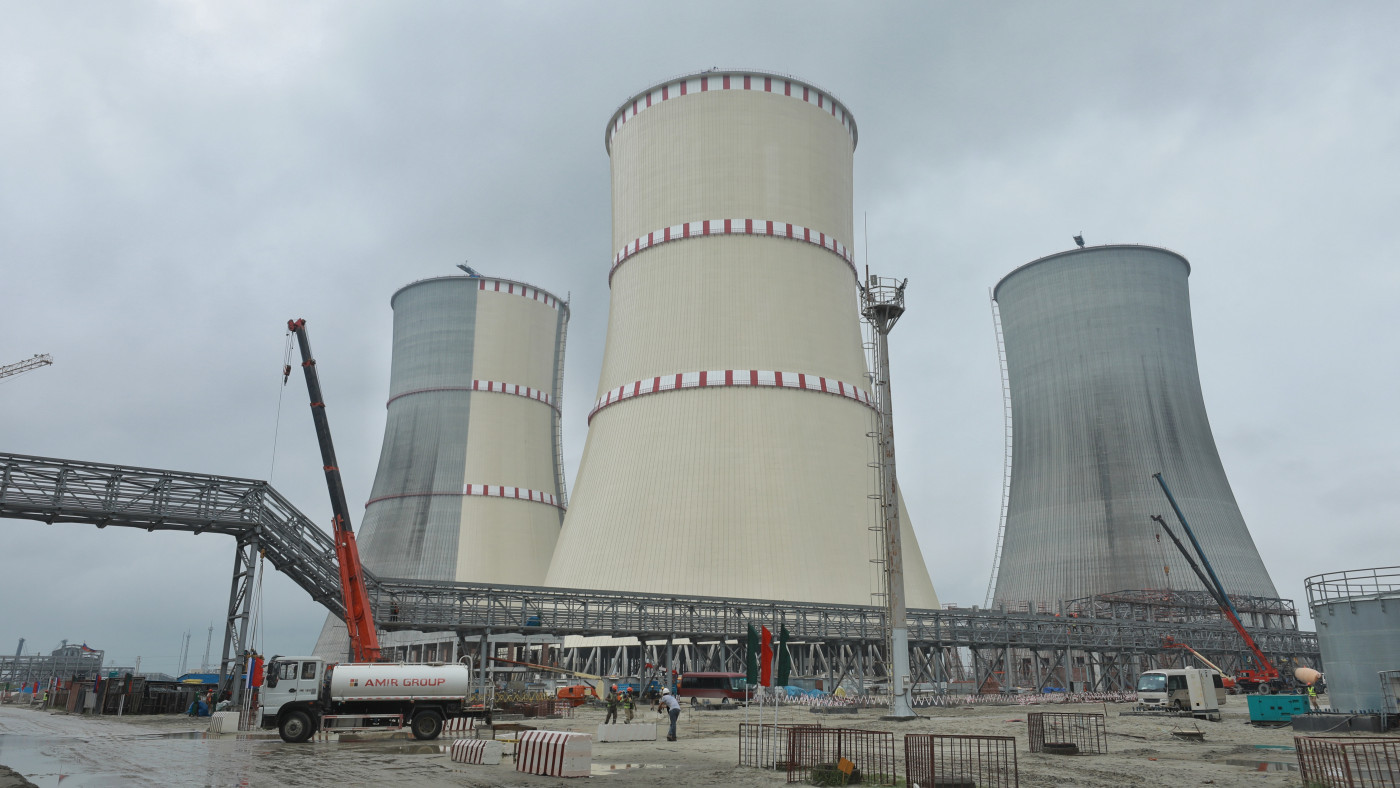Navigating misconceptions and creating a sustainable nuclear fuel supply chain
To ensure future energy security and climate resilience, Bangladesh needs to obtain technological capability and self-sufficiency for cost-effective and sustainable fuel supply for the Rooppur Nuclear Power Plant

I generally talk to rickshaw or auto drivers when travelling, to learn about their views on various subjects. Most people know about the construction of a nuclear power plant in Pabna. Quite a few rickshaw and auto drivers have discussed with me that four large nuclear bombs are being made at Rooppur. They wonder, what would be the country's fate if these explode?
They are very concerned about the situation in the country. They are, of course, talking about the four tall cooling towers and reactor building. These four 175-meter tall cooling towers will be used for heat dissipation, and the water vapour emitted through them will be entirely safe for the environment.
However, these misperceptions are not limited to just rickshaw and auto drivers. I have seen many educated and conscious people, including employees at nuclear facilities, holding similar misperceptions. These can be a significant obstacle in constructing, operating and expanding nuclear power plants. The more these misperceptions are reduced, the better.
Those who work in the nuclear industry exchange knowledge about this technology with people from all walks of life through social, print and electronic media. It is also essential to incorporate the safety of nuclear technology into the curriculum of schools and colleges.
This month, Russia sent nuclear fuel for the first reactor. Print and electronic media can significantly affect how people react to this. For example, I learned about the actual situation through the news. It is genuinely joyful. We are getting closer to realising the dream of Rooppur's implementation.
The Covid-19 pandemic or the Ukraine war could not hinder the progress of Rooppur's implementation. If everything remains on track, according to the full capacity of the first reactor, Rooppur will generate about 1,080MW of net electricity next year.
Considering the 1,200 MW capacity of the reactor, 93% efficiency and various electrical equipment, lights, air conditioners and so on, the electricity consumption will be approximately 120 MW.
Nuclear fuel comes into play only when all physical infrastructure and machinery installation is nearing completion. Initially, nuclear fuel arrived from Russia at Hazrat Shahjalal International Airport. Then, it was transported by road to the Rooppur site.
The specifics of how and when the nuclear fuel will arrive at Rooppur were not discussed since this entire process is highly confidential. However, international standards were maintained to oversee the fuel transportation activities from the airport to the project site by escorting allied security forces, regulatory monitoring, emergency response teams and subject matter experts. This is a globally tested method.
The primary focus of my discussion is to ensure a long-term and reliable supply of nuclear fuel. The lifespan of a reactor is at least 60 years. For two reactors, 50 tons of uranium oxide(UO2) fuel with enriched uranium-235 of 3%-5% will be required every 18 months. According to the current market price, this will cost approximately Tk200 crore.
The price of nuclear fuel is soaring. We need to consider the issue of sustainability in terms of the long-term stability of nuclear fuel for the country. Technology now allows for the manufacture of reactors in one country while obtaining nuclear fuel from another. Now, one country can produce reactors while importing nuclear fuel from another without technological limitations.
Let us see the plan for the long-term fuel supply of the United Arab Emirates (UAE). They have purchased four nuclear reactors from South Korea. To ensure the uninterrupted and cost-competitive supply of nuclear fuel, they have made contracts with multinational companies like Urenco (Germany, Netherlands and UK), Orano (France) and Rosatom (Russia).
The UAE will import fuel pellets (enriched uranium at 3 to 5%) from them. These fuel pellets, one cm in diameter and one and a half cm in height are used to create fuel rods for uranium. To create these fuel rods from imported fuel pellets, they will send them to South Korea. The finished uranium fuel rods will be delivered to the UAE's nuclear power plants.
On the other hand, the UAE is also trying to produce uranium fuel rods locally from imported enriched fuel pellets. Similar to how we import crude oil and refine it to produce petrol, kerosene or diesel. The goal is to obtain technological capability and self-sufficiency in cost-effective and sustainable fuel supply during the lifecycle of the plants.
We need more nuclear reactors to ensure future energy security and climate resilience. In this regard, securing a sustainable and reliable supply of nuclear fuel will be a future challenge. For that, a robust and sustainable plan for nuclear fuel supply is much needed.

Dr Md Shafiqul Islam is a Professor and Fulbright Scholar at the Nuclear Engineering Department, Dhaka University and a former Visiting Professor at MIT, USA.
Disclaimer: The views and opinions expressed in this article are those of the author and do not necessarily reflect the opinions and views of The Business Standard.



 Keep updated, follow The Business Standard's Google news channel
Keep updated, follow The Business Standard's Google news channel
















